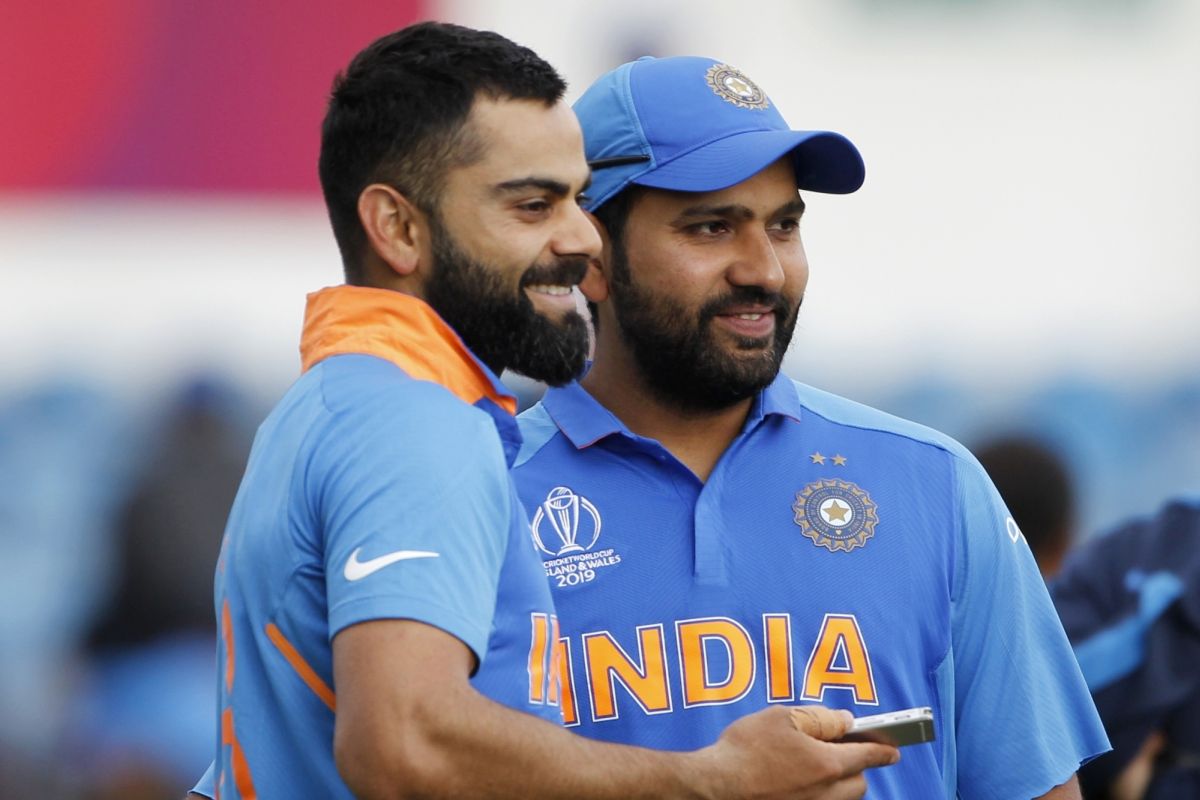India vs Pakistan, ICC Champions Trophy 2025: India thrash arch-rivals Pakistan in Dubai thriller
Kohli remained not out on 100 runs off 111 balls as India chased down the 242-run target in 42.3 overs.
As long as those in the portals of power are on top of things, a lapse here and a wordy duel there do not matter all that much. Sportsmen, who are not really fools, get on with it once the pain from the rap after the row has subsided.

Virat Kohli and Rohit Sharma (IANS file photo)
We have over the past few days reading about and heard so much of the behind-the-scene Virat Kohli-versus-Rohit Sharma conflict ~ even if notables have been got hold of to deny a rift ~ that we may now be excused for forgetting that these titanic clashes have always been fought, going right back to the day of the Maharajkumar of Vizianagaram. And just how bitter, intense and amazingly grudge-driven they can be, going forward long after the battle of the day has apparently concluded, was seen when Vijay Merchant’s casting vote, early in in the 1970s, sent Mansur Ali Khan Pataudi flying, giving India’s leadership to Ajit Wadekar ahead of a truly historic tour of the West Indies. That was because Merchant had been rubbed up the wrong way by his victim’s father. Subsequent examples abound: Sunil Gavaskar v Kapil Dev, Sourav Ganguly v Rahul Dravid, MS Dhoni v Virender Sehwag.
Also, superstars’ clashing egos always cast a sombre cloud on a variety of sporting disciplines and egos. And even when you detect no antagonism with the naked eye when big boys are at play in identical jerseys, subterranean tensions can hardly be a figment of the imagination. So Kohli-v-Sharma is, in a way, an extension of an old staple of sport, merely a new chapter, no more and no less. As long as those in the portals of power are on top of things, a lapse here and a wordy duel there do not matter all that much. Sportsmen, who are not really fools, get on with it once the pain from the rap after the row has subsided.
Advertisement
But it is a crisis when a Test captain essentially accuses his board president of lying. Sourav Ganguly had said he had told Kohli not to resign as India’s Twenty20 captain but the combative cricketer claimed, at a Press conference organised officially to signal India’s departure for South Africa, that nothing like it had ever happened.
Advertisement
On the contrary, he said, his decision to get rid of the burden ~ his three-format leadership was much more than a bit of a bother ~ was appreciated with all the right noises. Kohli having lost his captaincy of the One-Day Internationals team because India decided against two leaders in white-ball formats, the matter was quite important but of much greater significance was his charge of falsehood.
Only one of them is speaking the truth, and the trading of allegations will keep stinging Indian cricket until the villain is singled out in the public domain for the sake of the board’s institutional credibility. Its image took a beating when controversies surrounding the Indian Premier League provoked a police raid on one of its citadels in Mumbai, shocking countless people in the country. It could do without further damage to its position, which is why it should abjure secrecy of any kind.
Advertisement